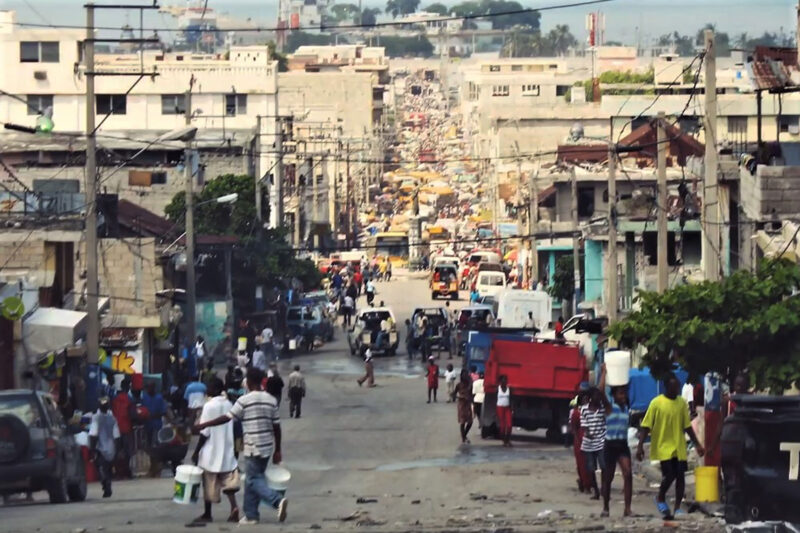According to the United Nations Integrated Office in Haiti (BINUH), the amount of people killed or injured in gang violence in Haiti between January and March 2024 has increased 53% compared to the last three months of 2023. The first quarter of 2024 has been the most violent since BINUH began to record statistics in 2022. More than 2,500 people have been killed or injured as a result of gang violence with the majority of the violence occurring in Haiti’s capital Port-au-Prince. The situation is worsening, with hundreds of thousands already internally displaced due to gang activity. Despite this, countries continue to deport migrants back into Haiti where the two main gangs have launched coordinated attacks that have targeted key state infrastructure, including police stations, prisons, and the Presidential Palace.
Amnesty International describes the circumstances in Haiti as a “grave crisis” and “urges the international community to address the situation in the country from a human rights perspective”. María Isabel, Special Representative of the Secretary-General for Haiti and Head of BINUH, briefed the UNSC last week, explaining that the establishment of a Transitional Presidential Council (TPC) will “pave the way towards democratic stability” but that “high attention must also be paid to the thousands of displaced people, including women and children, victims of gang violence, requiring humanitarian support”. Isabel points out that the Humanitarian Response Plan for Haiti is not completely funded, and urges UN Member States to continue to fund the Plan.
The report from the BINUH underscores a dire situation in the country, with a staggering increase in deaths and injuries from gang violence already this year. Amnesty International and other human rights organizations are correct in labeling the crisis, as there is an urgent need for a human rights-centered response from the international community. Addressing root causes of this violence is also essential for fostering lasting peace and stability in Haiti. The establishment of the Transitional Presidential Council (TPC) is a positive step towards progress, but its success hinges on robust international support and a holistic approach that addresses both immediate security concerns and underlying challenges.
Haiti’s President Jovenel Moïse was assassinated in 2021 after demands for his resignation grew rampant due to economic and political turmoil. Ariel Henry was appointed as President amid this political crisis in 2021, though conditions did not improve. As a result of natural disasters and the economic situation, gang violence in Haiti increased rapidly. Since January 2023, Haiti has had no national elected officials and anti-government sentiments have only grown. Henry has been prevented by gangs from returning to Haiti since a visit to Kenya in February, and as of the 25th of April, has agreed to resign and for a new transitional council to be sworn into office.
The events unfolding in Haiti, as highlighted by the recent BINUH report, underscore the urgent need for a concerted international effort to address the crisis. While the Transitional Presidential Council (TPC) shows potential, its effectiveness hinges on strong international backing. Moving forward, it is vital for the global community to stay actively involved and dedicated to assisting Haiti in its pursuit of enduring peace and the promotion of democratic principles. Initiating funding for the Humanitarian Response Plan for Haiti is the first step but sustained cooperation and support are imperative for long-term success.


